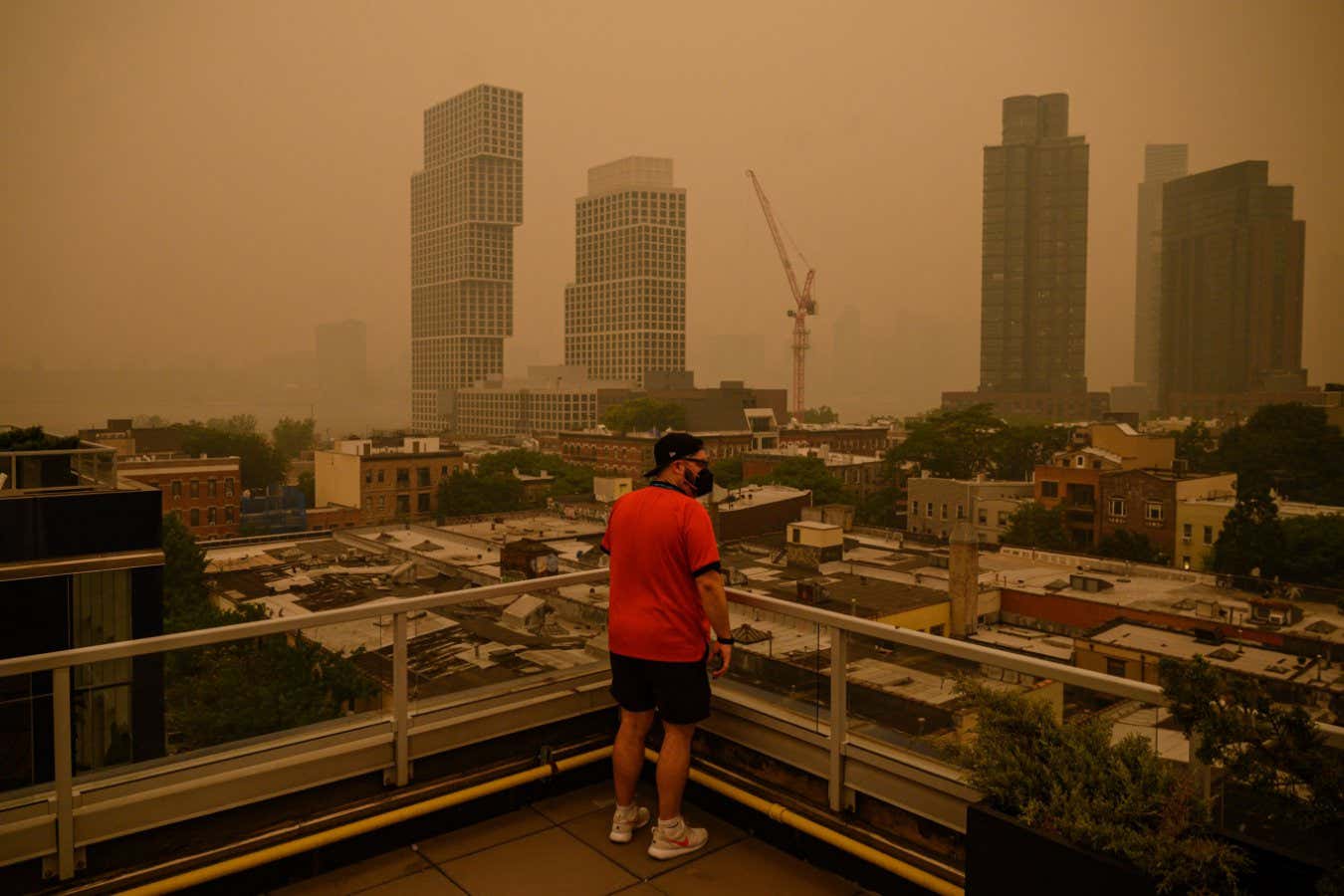Recent research is revealing how air pollution damages many parts of the body, who is most at risk and how heatwaves exacerbate the effects
By Madeleine Cuff
13 June 2023
Smog in New York City on 7 June caused by smoke from wildfires in Canada
Ed JONES/AFP/Getty Images
Millions of people across the US and Canada experienced some of the worst air quality in the world last week as smoke from Canadian wildfires blanketed towns and cities with thick, orange smog.
In New York, residents were urged to stay inside their homes and wear high-grade face masks when heading outside.
It has been common knowledge for some time that exposure to severe air pollution is harmful to health, particularly for people with existing respiratory conditions. But what is becoming increasingly clear from recent research is that poor air quality isn’t just a problem for the lungs. Pollution particles – whether from wildfire smoke, car exhausts, truck tyres or plastic waste – can cause damage throughout the body.
Advertisement
Here’s what we know from the latest science on air pollution and health.
Air pollution affects the whole body – not just the lungs
Poor air quality has long been linked to respiratory conditions such as asthma and reduced lung function. But research in recent years has demonstrated that the damage caused by a specific kind of pollution – fine particulate matter – can be carried throughout the body.
“If particles in the air are small enough, they can enter deep into the lungs, and there they are deposited in the air sacs,” says Annette Peters at Helmholtz University Munich, Germany.
